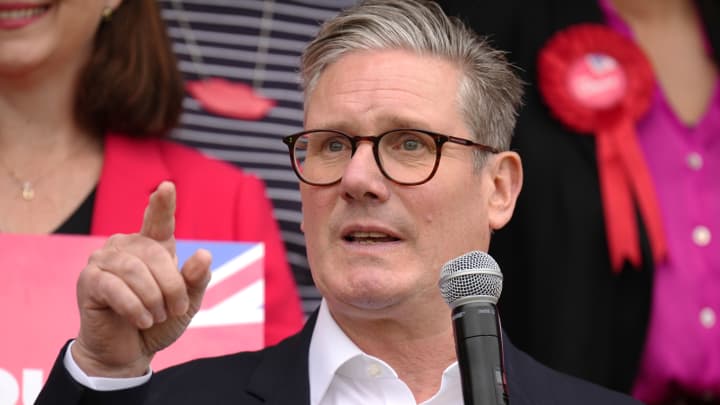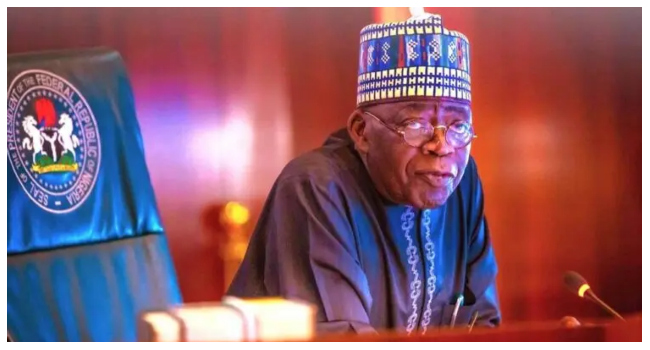In a historic political shift, the Labour Party has won the general election, with Prime Minister Rishi Sunak conceding defeat and congratulating Sir Keir Starmer on his victory.
In a solemn address after being re-elected to his seat, Sunak said, “The Labour Party has won this general election, and I have called Sir Keir Starmer to congratulate him on his victory. Today, power will change hands in a peaceful and orderly manner with goodwill on all sides.” The Conservative leader described the results as “sobering” and took responsibility for the party’s defeat.
At a jubilant rally in central London, Starmer, 61, addressed cheering supporters, declaring, “Change begins here,” and promised a “decade of national renewal,” putting “country first, party second.” He cautioned, however, that change would not be immediate, despite Labour capturing numerous Tory seats, including those of nine Cabinet members and former Prime Minister Liz Truss.
Truss’s brief and tumultuous 49-day tenure, marked by unfunded tax cuts that unsettled markets and devalued the pound, had significantly tarnished the Tories’ public image.
Truss, facing a campaign for her removal by local activists known as the “Turnip Taliban” in her rural constituency, lost her seat by just 630 votes. Labour surpassed the 326 seats needed for a majority in the 650-seat parliament by 0400 GMT, with the final result expected later on Friday morning.
An exit poll for UK broadcasters, released after polls closed at 2100 GMT on Thursday, projected Labour to win 410 seats, securing a 170-seat majority. The Conservatives, predicted to secure only 131 seats, faced a record low, with Nigel Farage’s anti-immigration Reform UK party splitting the right-wing vote.
In another boost for centrists, the smaller opposition Liberal Democrats overtook the Scottish National Party to become the third-largest party. The results stand in contrast to a rightward trend among Britain’s Western allies, where the far right in France is gaining momentum, and Donald Trump appears poised for a return in the United States.
British newspapers focused on Labour’s return to power, with the Labour-supporting Daily Mirror headlining “Keir We Go,” and The Sun, which backed Labour for the first time since 2005, proclaiming, “Britain sees red.”
Sunak is expected to tender his resignation to King Charles III, who will then invite Starmer, as the leader of the largest party in parliament, to form a government. The Conservatives’ worst previous election result was 156 seats in 1906. Former leader William Hague described the projections as a “catastrophic result in historic terms” to Times Radio.
However, Tim Bale, a politics professor at Queen Mary University of London, suggested the outcome was “not as catastrophic as some were predicting,” indicating the Tories now face the challenge of determining their future strategy. Right-wing figures such as former interior minister Suella Braverman and House of Commons leader Penny Mordaunt blamed the loss on the party’s failure to heed the British public’s concerns.
Brexit champion Nigel Farage, who won a seat after eight attempts, expressed his aim to fill the “massive gap on the centre-right of British politics.” Labour’s resurgence marks a dramatic turnaround from five years ago when Jeremy Corbyn led the party to its worst defeat since 1935, in an election dominated by Brexit.
Starmer, who assumed leadership in early 2020, has steered the party back to the centre, purging internal conflicts and anti-Semitism that had eroded its support. Consistent opinion polls since Truss’s resignation have shown Labour leading the Tories by 20 points, creating an air of inevitability around Labour’s victory, the first since Tony Blair’s win in 2005.
Starmer faces a formidable agenda, with economic growth stagnating, public services underfunded, and households under financial pressure. He has also vowed to restore political integrity after a period of turbulence marked by five Tory prime ministers in 14 years, scandals, and controversies.






